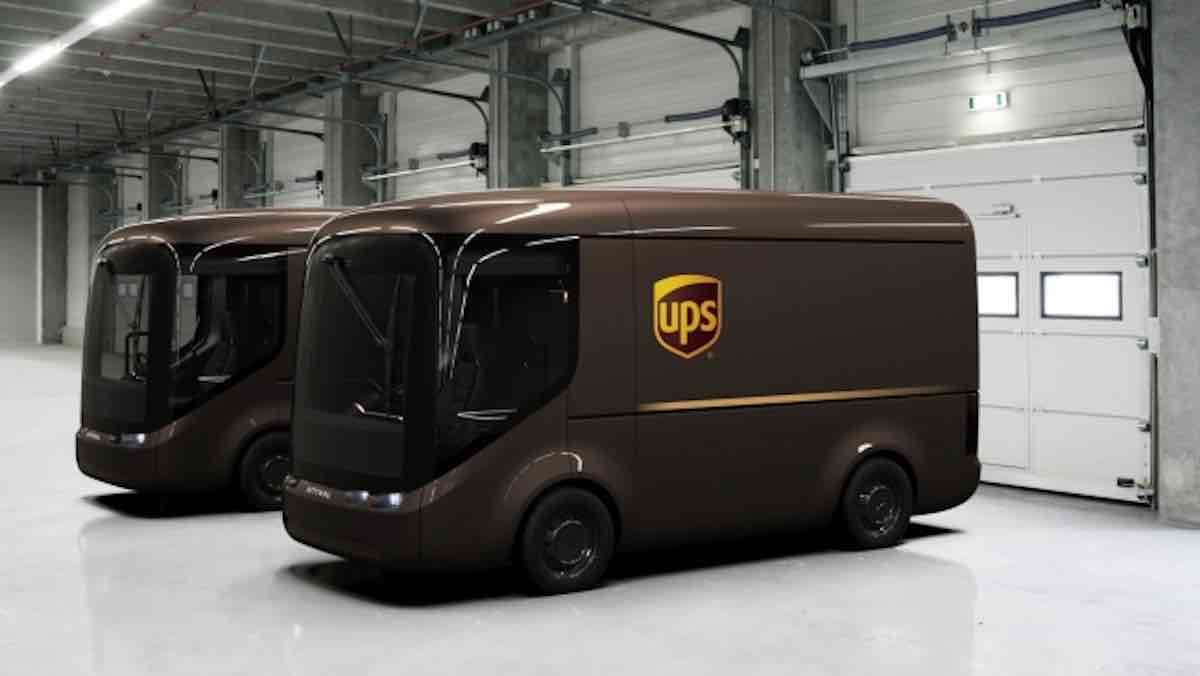Sweden's First EV-Charging Road Will Power Electric Vehicles as They Drive
Construction is slated to begin in 2025 along a whopping 13 miles road, but it hasn't been decided which method of charging will be used.

UPS is making headlines yet again for its driving efforts in the fight against climate change.
The company announced last week that it will be launching a state-of-the-art pilot fleet of 35 electric delivery vehicles (EVs) that will be trialed in London and Paris before the end of this year.
The vehicles are being developed in collaboration with UK-based technology firm ARRIVAL. The zero tailpipe emission, lightweight composite vehicles have a battery range of more than 150 miles (240 kilometers), which is significantly higher than other EVs currently in service. The vehicles will also come equipped with Advanced Driver Assistance Systems (ADAS) that help to improve safety and reduce driver fatigue.
In order to accommodate the fleet, UPS says that it has also installed an innovative kind of charging station at its central London depot in Camden that will overcome the challenge of simultaneously recharging an entire fleet of EVs without the need for an expensive upgrade to the power supply grid.
With more than 9,000 vehicles worldwide operating using alternative propulsion methods, UPS possesses one of the largest private and most diverse alternative fuel and advanced technology fleets in the entire logistics industry.
Currently, the company has more than 300 electric vehicles deployed in Europe and the U.S., and nearly 700 hybrid electric vehicles. And, last December, UPS ordered 125 new fully-electric semi-tractors to be built by Tesla in 2019, the largest pre-order to date.
The pre-order is also exciting because of Tesla's most recent boast over their vehicle battery's 600-mile range.
"This initiative will help UPS attain its global carbon reduction goals for the company's facilities and fleets," said Peter Harris, director for sustainability at UPS Europe. "We will continue working with our partners, communities and customers to spark innovation, thus leading the industry toward a more sustainable future."
Since 2009, UPS has invested over $750 million in alternative fuel and advanced technology vehicles. And, in 2016, a full year earlier than expected, UPS achieved its self-set goal of covering 1 billion miles (1.6 billion kilometers) using its fleet of alternative fuel and advanced technology vehicles.
"This is a pioneering collaboration that helps UPS develop new ways to reduce our emissions," said Luke Wake from the advanced technology group at UPS. "UPS is marshaling its global scale to encourage innovation within the automotive industry. We are helping to drive demand for these disruptive technologies. The result is a safer and cleaner fleet for the communities in which we deliver."
Help Drive The Good News To Your Friends By Sharing This Article On Social Media – Photo by UPS
Be the first to comment